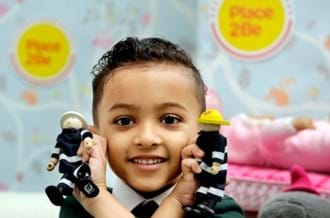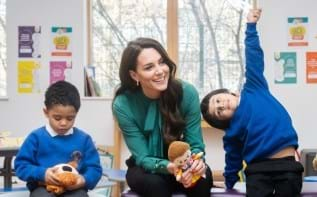Bereavement and the impact on children
Bereavement can affect children and young people in many ways and every child will grieve differently

At Place2Be we often work with children who are grieving the death of someone. We know that they can withdraw from interacting with others, isolate themselves and struggle to communicate. Children who are coping with bereavement may also need to be reassured regularly or have clingy behaviour. Young children who are grieving may not be able to articulate what they are thinking and how they are feeling and their struggles can manifest in changes in their behaviour. It may appear as if they are grieving in spurts, this does not mean that they are not impacted or struggling, they just respond differently.
Every child is different
Bereavement can affect children and young people in many ways, every child and young person will grieve differently and in their own time. Many factors contribute to their response including their relationship with the person they have lost, previous experiences, available support, their personality, and awareness of adults around them. It can be helpful for children and young people to hear that thoughts, feelings and behaviours can change from one moment to the next and that this is normal. Like adults, it is not unusual for grief to re-surface intermittently and unexpectedly over a long period of time. For example, they may suddenly become tearful and you may notice a change in behaviour that is unexpected. It's important for adults to remain alert to any changes and respond appropriately.
The right time to talk
Children mature at different ages and stages and their understanding of death can be linked to factors such as previous experiences, family, wider culture, age and cognitive development.
Young children can start to develop a curiosity in and an understanding of the idea of death but not recognise its finality. They may for example, struggle with the concept that the person has physically gone. When discussing death with a child, try to give honest answers. You can respond to a child's questions, without overwhelming them with too much information. They may have questions that they are too scared or upset to ask. Simply reminding them that they can ask you any questions they have may give them the courage to seek the answers they need.
Supporting a grieving child
If you are supporting a child who is coping with bereavement, you can refer them to specialist services such as counselling. Even though you may not be a mental health specialist, do not underestimate the positive impact your awareness and support will provide a child or young person who is grieving.
There are excellent books available that focus on explaining death to children at different ages, stages of development and from different cultural and religious beliefs.
I would highly recommend a book called "Lifestimes:Beginnings and endings with Lifetimes in Between" written by Bryan Mellonie.
This blog was written by Fiona Pienaar, Former Director of Clinical Services at Place2Be in a personal capacity and does not necessarily reflect the view of the organisation.
Read Matthew's story to find out how we supported him after his Father died.
News & blogs

The power of play: from football drills to counselling skills
A reflection by Brendan Kiernan, professional footballer, qualified psychotherapist, and Place2Be Counsellor alumnus.
Read more
Launch of good practice guide for schools - supporting displaced families
Place2Be is proud to have collaborated with Save the Children UK in the creation of a good practice guide.
Read more
Carrie Elizabeth Jewellery launches new collection supporting Place2Be
Carrie Elizabeth Jewellery launches ‘Your Safe Space’, a collection designed to support connection and inner calm.
Read more



